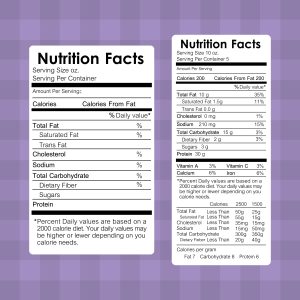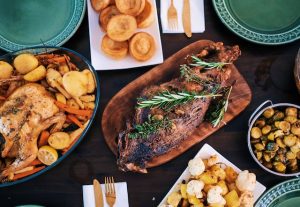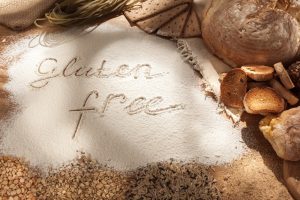Every serious athlete knows about the importance of diet, which can strongly impact their performance. These athletes are trying out all kinds of eating plans in search of the perfect diet. However, those athletes who have an intolerance to gluten or have a diagnosed condition with coeliac disease have certain limitations.
They must follow a strict gluten-free diet in order to impact overall health and performance. In case you didn’t know, gluten is a structural protein naturally found in certain cereal grains like wheat, rye, and barley. In this article, we will reveal the types of foods gluten-free athletes are using in their diet.
Why Athletes Follow a Gluten-Free Diets?
Gluten-free diets are essential only to those athletes who have coeliac disease or a gluten intolerance. Athletes who aren’t gluten-sensitive won’t experience a spike in their performance.
Gluten-intolerant athletes experience bloatedness, abdominal pain, diarrhea, headaches, and foggy brain. So, for an athlete who has a gluten sensitivity, following such diets is crucial. Without it, they will almost certainly fail to reach their full potential as well as fall behind the other athletes.
Between 0.6% and 6% of all the people in the world are sensitive to gluten. Some of them are athletes who compete at the highest level in different sports. This includes several well-known Olympic athletes who praise the gluten-free diet for their sports accomplishments.
The Australian Olympic Team has a few such athletes including swimmer Ariarne Titmus and track and field runner Torrie Lewis. Olympic athletes from the US who have gluten sensitivity are speed skater Chris Creveling, bobsledder Elana Meyers, and biathlete Sara Studebaker.
We must also mention Novak Djokovic, one of the greatest tennis players of all time. He followed a gluten-free diet at the 2016 and 2020 Olympics. Sadly, he didn’t win any medals at these events, which surprised many fans. This even astounded the Olympic betting sites, which gave him the best odds for winning.
The Gluten-Free Foods Every Athlete Should Eat
As we revealed in the beginning, gluten-sensitive athletes must avoid wheat, rye, and barley. But, they can easily find good substitutes for these foods as there are a variety of other grain options.
Some great gluten-free grains that you can consume are rice, quinoa, amaranth, corn, millet, buckwheat groats, and arrowroot. Be aware of products made with these grains, as they may come as a crossbreed with other grains. Make sure to carefully read the food labels to find and avoid such foods.
Fruits and vegetables are also essential foods for athletes, regardless if they have a gluten intolerance or not. These foods provide fiber, vitamins, and minerals, which makes them super nutritious. Starchy vegetables are a good source of carbohydrate intake for gluten-sensitive athletes. Such vegetables are green peas, potatoes, sweet potatoes, beans, legumes, and winter squash (pumpkin, butternut, and acorn).
Another food group that is also gluten-free is dairy. Milk and yoghurt are great sources of carbohydrates, as well as calcium and protein. Many dairy products also come with added Vitamin D. Protein-rich foods are very important for athletes. They help you build, repair, and maintain lean muscle mass. All meat products are gluten-free, but some of them come with excess fats.
As such, gluten-free athletes are usually consuming chicken or seafood. Another good source of protein that also comes with a good portion of healthy fats is eggs. Before buying or consuming processed meats, it’s super important to read the food labels. That way you can be sure that the foods don’t contain any added gluten ingredients.
Here, we must note that there are several good plant-based, gluten-free protein sources that athletes can use. This includes foods such as nuts, soy, beans, and legumes. Be careful when you purchase soy or soy products, as they may contain gluten in their seasonings or marinades.
Gluten-Free Meal Plans for Endurance
Every athlete must consume specific foods that will enhance their endurance. That way they can push themselves into reaching new heights. Before an early workout, every gluten-free athlete should have a good pre-workout meal. One option is to soak gluten-free oats with milk and top it with a fruit of choice, a dash of cinnamon, and 1-2 tablespoons of nut butter.
You can also have scrambled eggs, gluten-free toast with avocado or nut butter, and some fruits. Roasted potatoes, sauteed leafy greens, and scrambled tofu is another good pre-workout meal. For lunch, athletes should make a gluten-free wrap filled with hummus, chickpeas, cucumbers, lettuce, and tomatoes. Another option is a lentil salad with feta and sun-dried tomatoes.
One good gluten-free dinner meal is a southwestern quinoa power bowl. This meal contains plant-based protein from beans and quinoa, as well as a variety of colorful vegetables. It even comes with the healthy fats found in olive oil. Another good dinner meal is tofu stir fry with cauliflower and brown rice. This dish also comes with peppers, broccoli, onions, a side salad, and a gluten-free soy sauce.




